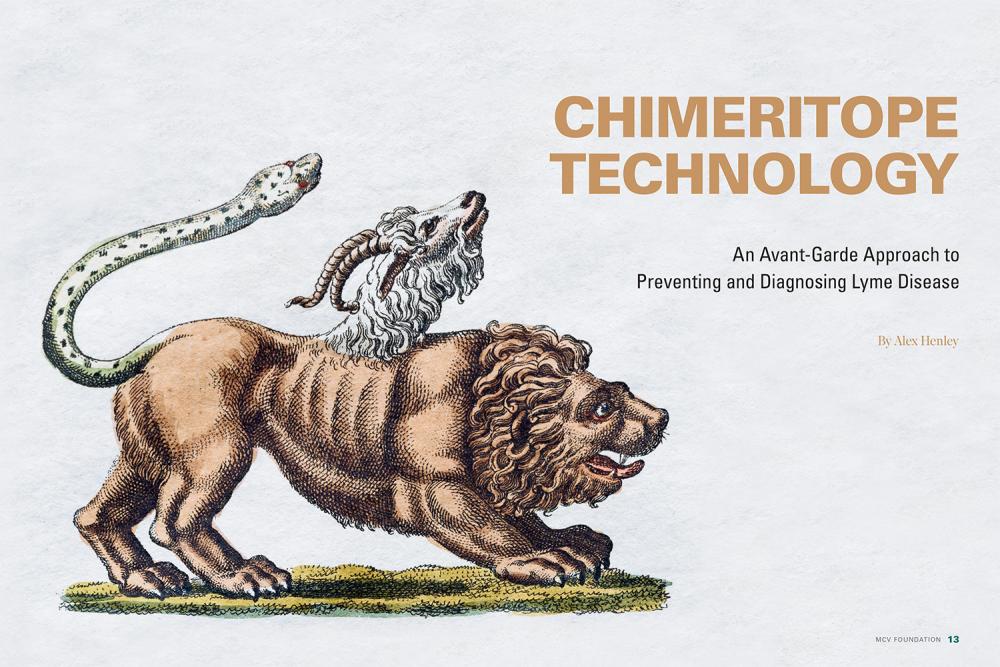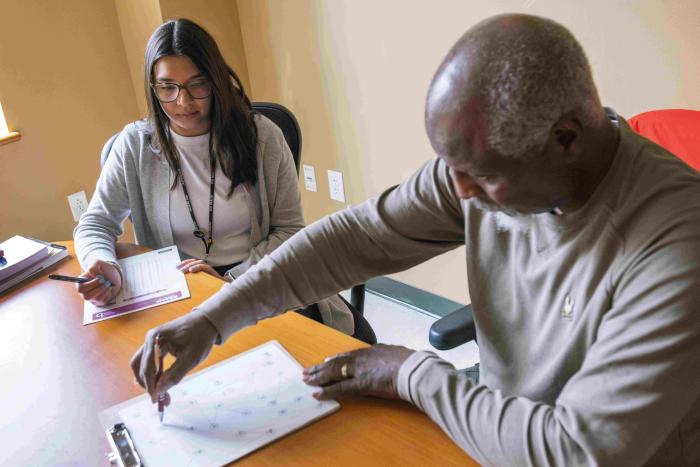
After finally receiving the right diagnosis and treatment for Lyme disease, Craig Suro and his daughter are back to enjoying healthy, full lives. Running is one of their favorite activities, and here they celebrate completing a local turkey trot race together last Thanksgiving. Photo courtesy of the Suro family
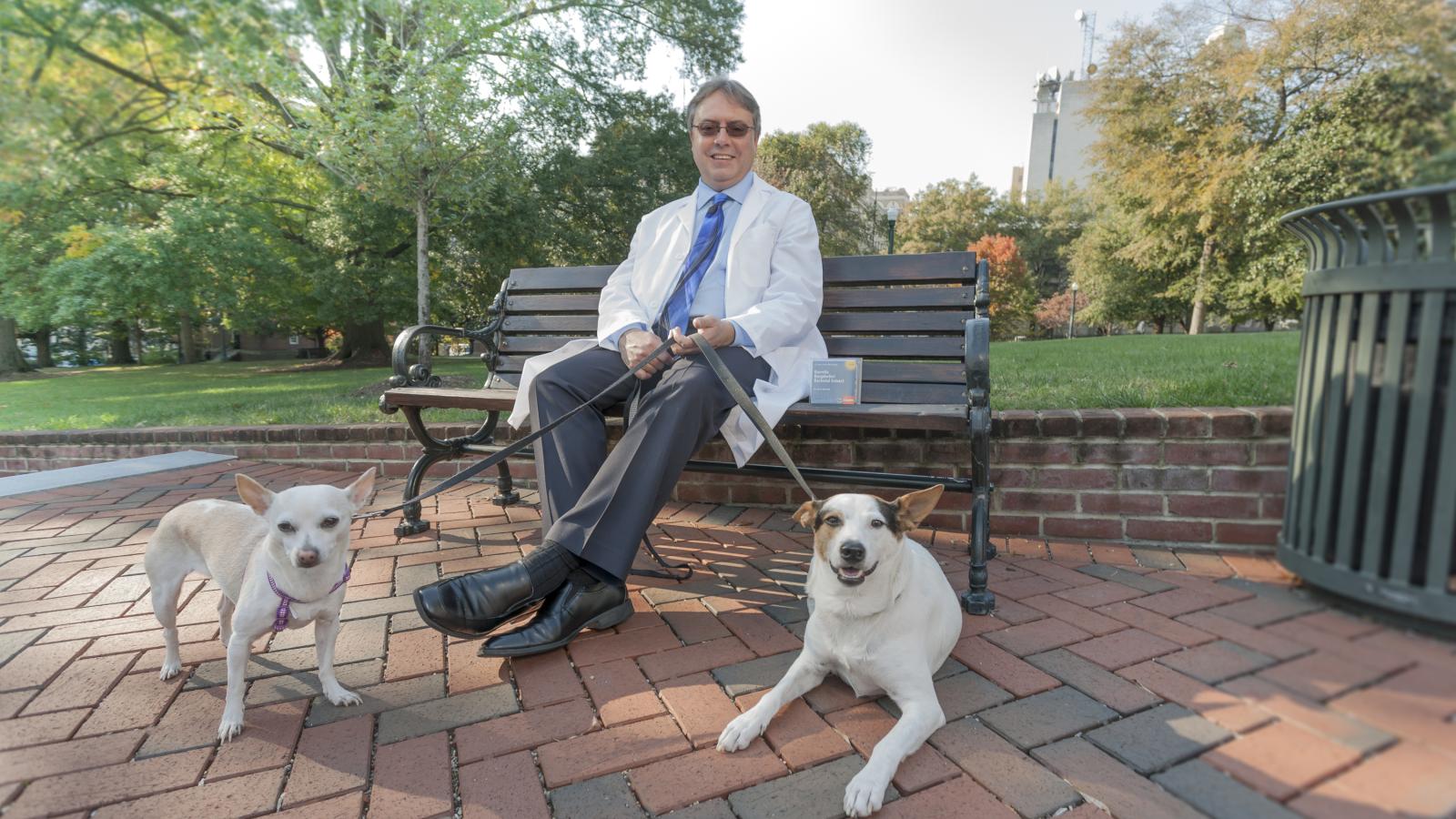
Richard T. Marconi, Ph.D., professor at VCU School of Medicine’s Department of Microbiology and Immunology, has developed a Lyme disease vaccine for canines, a diagnostic test for humans, and is on his way to a vaccine for humans. The Centers for Disease Control estimates there are 300,000 people diagnosed with Lyme disease in the U.S. each year, but many experts posit the number of new infections is much higher, possibly double. Photo: Karl Steinbrenner
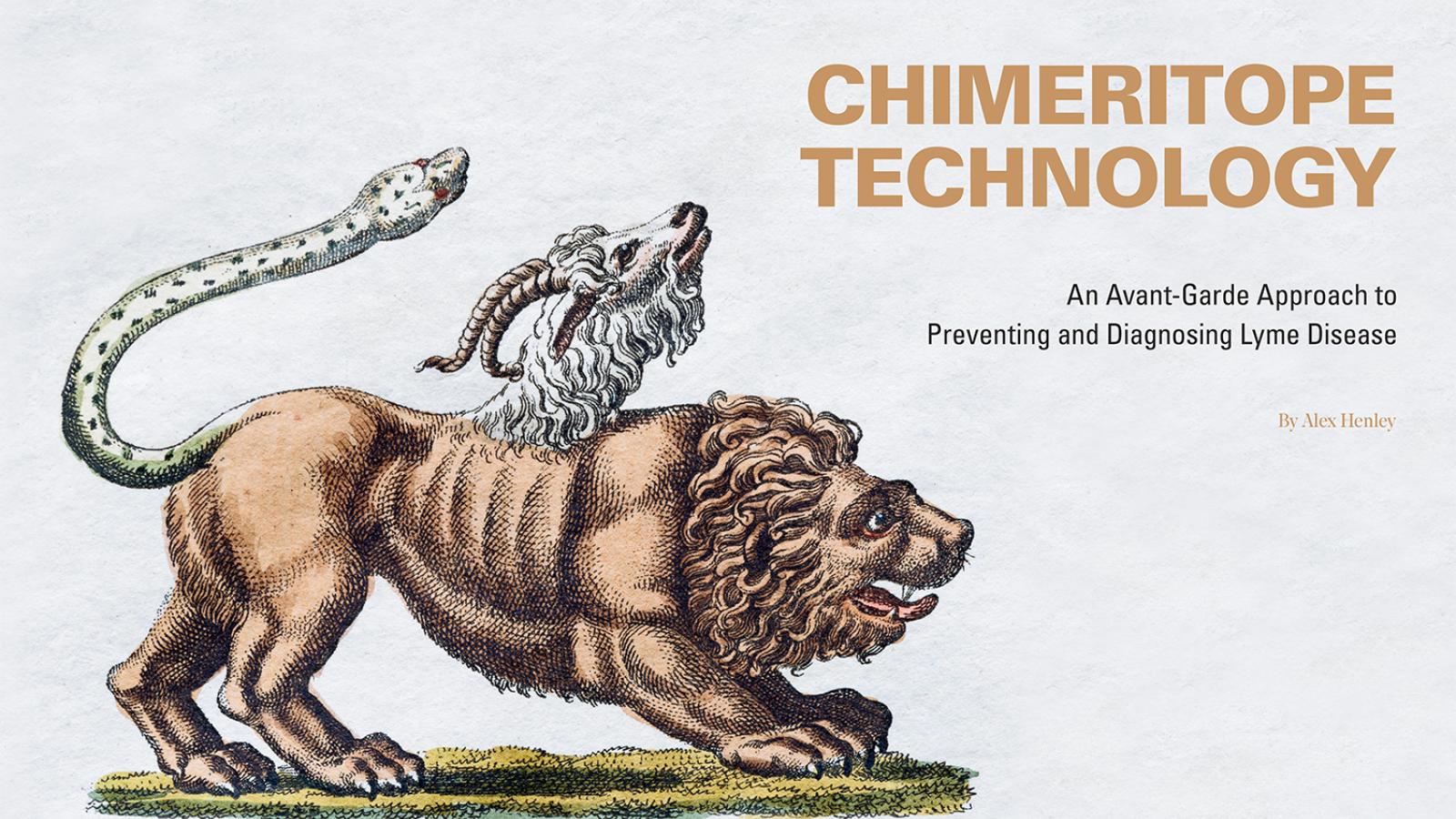
The Relief of a Diagnosis
Editor’s Note: During Lyme Disease Awareness Month, we’re revisiting a story from NEXT magazine about lifechanging research happening on the MCV Campus at VCU Health that is giving hope to those who suffer from the disease.
The average Lyme disease patient sees five doctors over two years before they finally find a diagnosis — Craig Suro is one of those patients.
In June 2015, Craig spent an afternoon archery hunting underneath the Huguenot Bridge on the James River. Two days later, he found two ticks on his waistline and removed them.
In the following weeks and months, he experienced symptoms ranging from a persistent cold and pain in his neck to cognitive impairment, exaggerated emotions and a severe lack of confidence.
He went to his general practitioner, who ran a full panel of bloodwork — everything came back normal, including a test for Lyme disease.
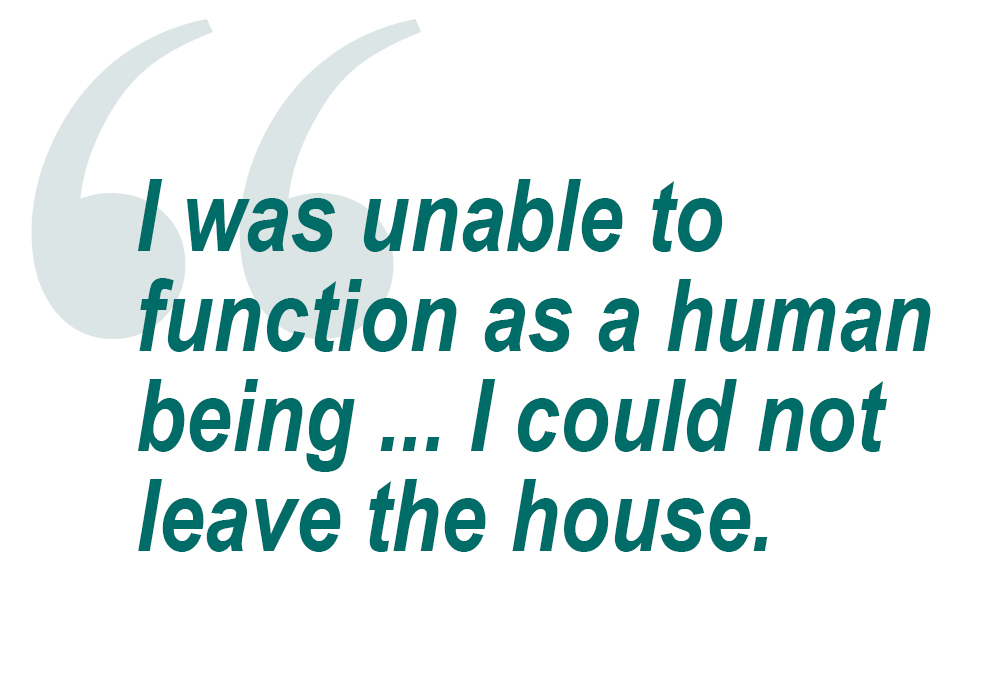 “By the end of August, I was unable to function as a human being,” Craig told us. “I could not leave the house. I was diagnosed as having a midlife crisis by my general practitioner, and he said nothing was physically wrong with me.”
“By the end of August, I was unable to function as a human being,” Craig told us. “I could not leave the house. I was diagnosed as having a midlife crisis by my general practitioner, and he said nothing was physically wrong with me.”
This is the story of countless Lyme disease patients. One day everything is fine, and then suddenly life is drastically altered. And the worst part is, many of these people are told that nothing is medically wrong with them.
Despite Craig’s lack of a diagnosis, his symptoms became worse. He suffered several medical episodes, one of which he described this way: “I felt lightheaded and fell to the floor. I was sweating profusely, drooling and was able to call out and crawl on the floor toward my wife, who called an ambulance. Thirty minutes later I was in the ambulance and my vitals were back to normal. The EMTs said they had never seen anything like this.”
Craig had an MRI that September that showed everything was normal. He asked his doctor to run the Lyme disease tests again, and the results came back negative.
Craig then went to an endocrinologist, a psychologist and a psychiatrist, all of whom did at least agree that something was physiologically wrong, but they didn’t know what.
“At the six-month mark it became just unbearable,” Craig said.
Finding a Diagnosis
Fortunately, at a lunch to catch up with an old friend, Craig got just the break he needed.
“In the restaurant, I’m hyperventilating and everything is too bright, but by this point I’m used to it and just try to fend it off,” he said. “It’s hard when you look fine on the outside — everyone just assumes you’re nuts.
“When I mentioned the ticks to my friend, he said, ‘If you think there’s a chance it’s Lyme disease, you’ve got to talk to Dr. Marconi. He was my professor and he’s right here in Richmond.’”
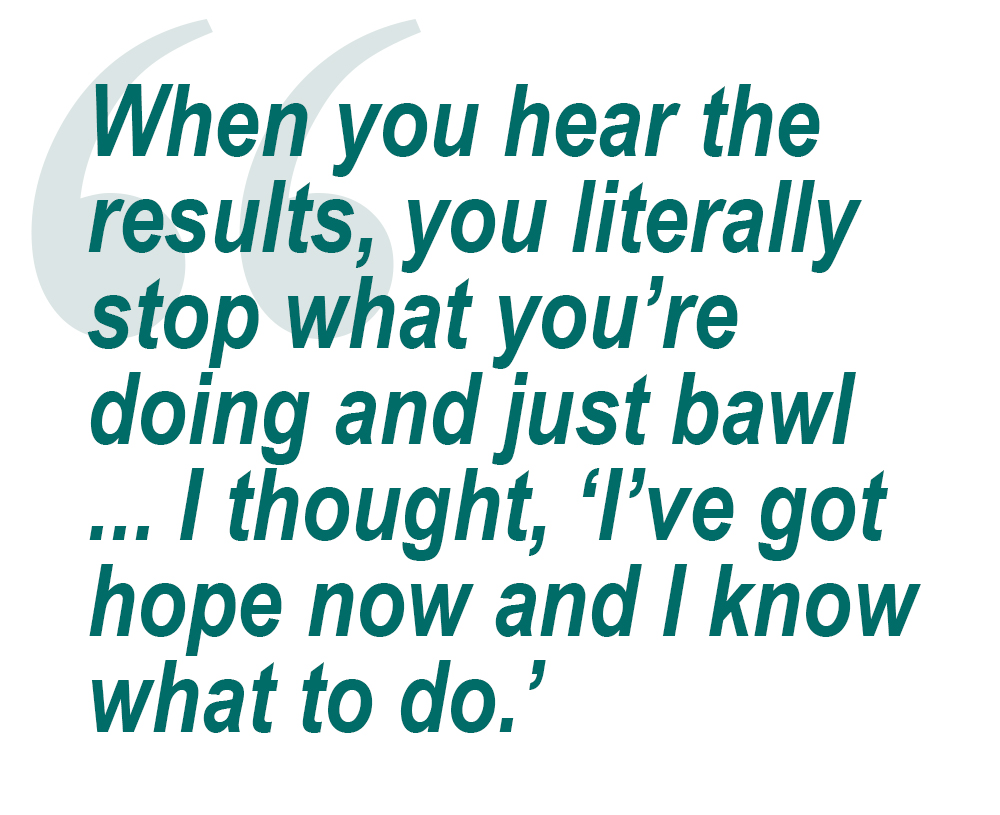 Richard T. Marconi, Ph.D., professor in VCU School of Medicine’s Department of Microbiology and Immunology, is a leading Lyme disease researcher. He looked at Craig’s blood under a microscope and found a high bacterial load that told him Craig was most likely suffering from Lyme disease.
Richard T. Marconi, Ph.D., professor in VCU School of Medicine’s Department of Microbiology and Immunology, is a leading Lyme disease researcher. He looked at Craig’s blood under a microscope and found a high bacterial load that told him Craig was most likely suffering from Lyme disease.
“When you hear the results, you literally stop what you’re doing and just bawl,” Craig said. “Not having a diagnosis is such a torture. I don’t think Dr. Marconi has any idea what he did for me. It was such a relief. I thought, ‘I’ve got hope now and I know what to do.’”
After six months of treatment, Craig’s blood tests came back clear of the spirochete bacteria that cause Lyme disease. He also found out the Lyme disease had caused swelling in his brain. As the brain is one of the slowest parts of the body to heal, it took a year-and-a-half for him to make a full recovery.
A Diagnostic Test
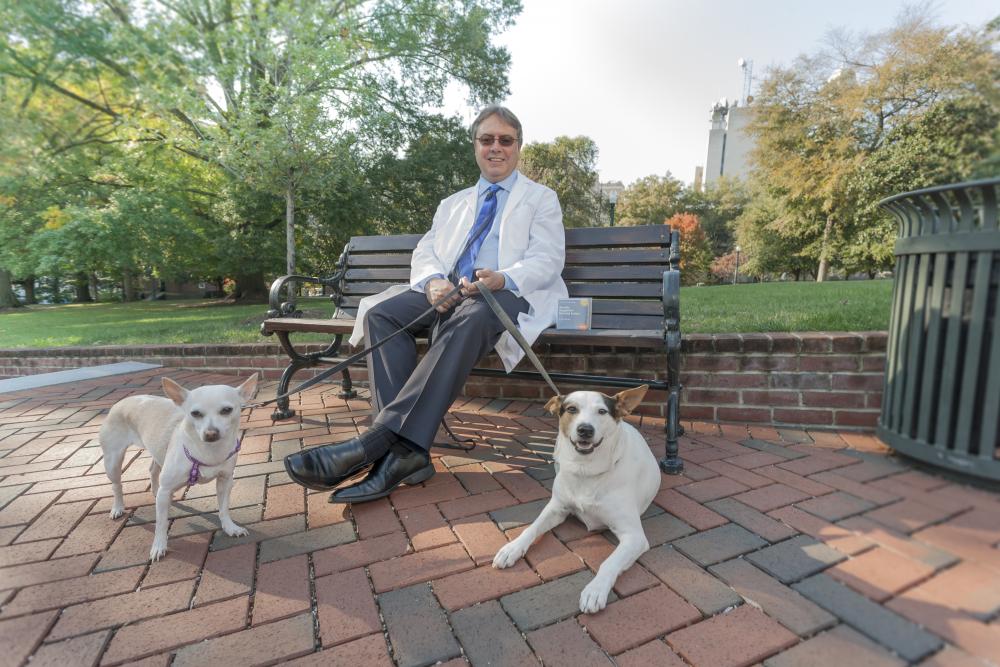
Lyme disease is known as “the great imitator” because it includes such a wide range of symptoms that it can resemble anything from juvenile arthritis to fibromyalgia, chronic fatigue syndrome, lupus, multiple sclerosis or any other number of diseases.
This makes a diagnosis based on clinical symptoms difficult and crystalizes the importance of a definitive test.
Thanks to Dr. Marconi’s lab, there is now a much more effective diagnostic test available that will hopefully reduce the uncertainty that thousands of people face when looking for answers about their symptoms.
VCU Innovation Gateway and Dr. Marconi’s lab have partnered with a company called Global Diagnostics to bring this test to market. It was launched in June 2017 as the “GLD Test” and is now available as a screening and diagnostic tool for patients and physicians.
Dr. Marconi developed the test based on technology he developed in his pursuit of a vaccine for dogs. The canine vaccine was launched in the U.S. in January 2016 under the name Vanguard® crLyme,, and he and his team are currently working on a vaccine for humans. To read more about this technology and Dr. Marconi’s work, read the cover story in NEXT magazine.
A Blessing in Disguise
Craig’s story doesn’t end with his recovery.
 In May 2017, Craig’s daughter leaned into him and told him she was so very tired and had a headache. They tracked her symptoms, which occurred often enough to warrant concern. Craig and his wife were able to quickly get their daughter to their Lyme-literate doctor. By this time the Global Lyme Diagnostic test was on the market, and it came back positive for Lyme disease. Craig’s daughter immediately began a course of antibiotics for four weeks, and by the 22nd day she sprang back to her normal self again.
In May 2017, Craig’s daughter leaned into him and told him she was so very tired and had a headache. They tracked her symptoms, which occurred often enough to warrant concern. Craig and his wife were able to quickly get their daughter to their Lyme-literate doctor. By this time the Global Lyme Diagnostic test was on the market, and it came back positive for Lyme disease. Craig’s daughter immediately began a course of antibiotics for four weeks, and by the 22nd day she sprang back to her normal self again.
“I often wonder, did I go through everything I went through to save my daughter?” Craig said. “I’ve helped two of my friends get a diagnosis and they’ve helped their friends.”
As for Dr. Marconi, Craig says, “I owe him dearly. He literally, quite literally, saved my life. People need to understand that Lyme disease is a huge, real, legitimate problem. Rich gave me the hard data I needed to prove I had an illness and find a doctor who could help me.”
If you would like to contribute to Dr. Marconi’s research to end Lyme disease and other related infections, please contact Brian Thomas, vice president and chief development officer at the MCV Foundation, at 804-828-0067 or bthomas@mcvfoundation.org.
